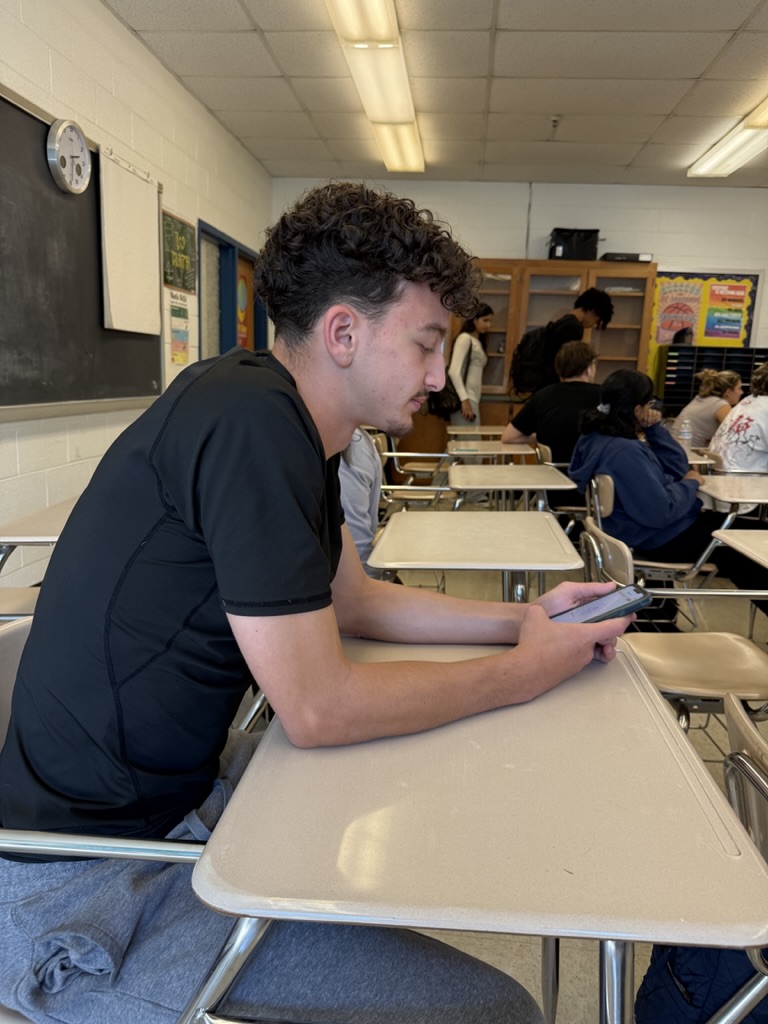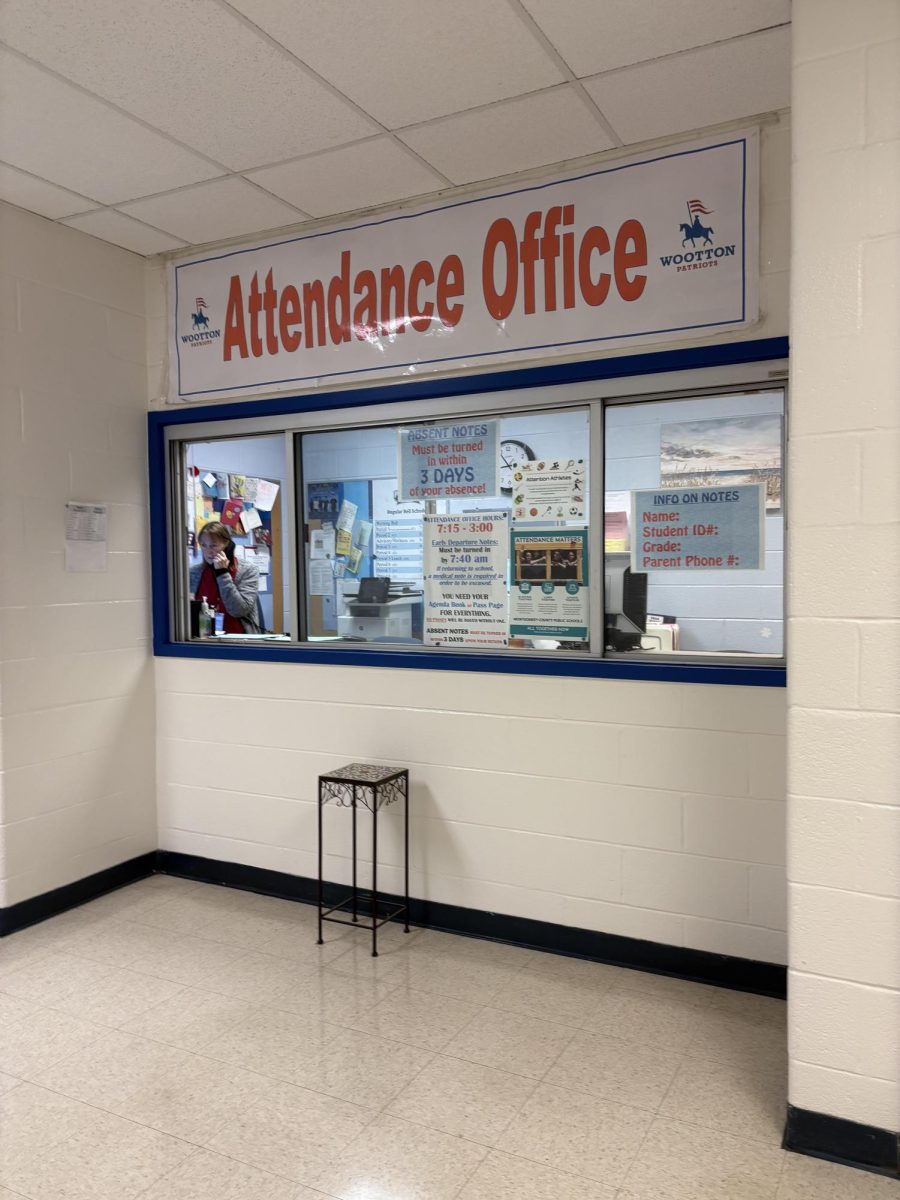What do you mean, I can’t use my MacBook at school? What do you mean, a teacher can take my phone if they see it on my desk?
Students are asking these questions as, this school year, MCPS has implemented a new technology policy. Personal computers and phones during class time are now banned.
The MCPS goal for this policy is to improve focus, reduce distractions and promote a more engaging learning environment for students, according to the Montgomery County Public Schools website. Students may see this change as unfairly restrictive, while teachers may see it as a weight lifted off their shoulders.
In the classroom, laptops and smartphones have become a staple. Students rely on their personal computers for taking notes, completing assignments or staying organized. Phones historically have been discouraged by teachers as they are seen as distractions for students. Typically, students use their phones to scroll through social media, text their friends, or browse the internet. In past years, teachers often struggled to compete with phones to keep students on track.
The new policy aims to create boundaries, according to the administration. Instead of allowing students to bring in their own devices, the school provides and enforces school-owned technology. This approach ensures that technology use is purposeful and directly connected to learning. Phones are now strictly off-limits during class time. “A new technology policy effective for the 2025-2026 school year limits personal mobile device use during the school day to reduce distractions and improve focus. Elementary and middle school students must keep devices off and put away all day, while high schoolers can use them during lunch and between classes, but not during instructional time,” according to the MCPSwebsite.
In previous school years, the technology policy was to reduce phone distractions during school hours. Some teachers were more lenient with this policy than others. Depending on the teacher, students may have been allowed to have their phone out or they may have to put it in their backpack for the whole class.
Now students are required to keep phones in their backpacks or in a phone-holding pouch within the classroom. Teachers and administrators say that this will prevent unnecessary distractions, cheating, and social media temptations, allowing students to focus fully on lessons. “We have found that between the distractions of just having a cell phone and constant connections, things that are happening in the real world, and the safety and security of ensuring that are networks are secure, that having students who only have access to their personal mobile devices during non-instructional times is the most beneficial for student learning and school security,” administrator Gillian Ratti said.
Students may feel anger toward their teachers if they take phones away, which creates a negative classroom environment. “I don’t think teachers should have the right to take our phones away. When my teacher takes my phone, I do get mad, and I find myself sometimes not paying attention because I’m still caught up on my phone being taken,” senior Jonas Klein said.
In 2015, co-authors of the article “Do Smartphones Belong in the Classrooms?” Richard Murphy and Louis-Philippe Beland conducted a study that showed students who kept phones and personal devices away during class performed better on exams, retained more information and engaged more actively in class discussions. “Similar studies in Spain and Norway using a similar approach demonstrated compelling evidence supporting the benefits of banning mobile phones. In Spain, grades improved and bullying incidents decreased. In Norway, the ban raised middle school students’ grade-point averages and their likelihood of attending academic high schools while reducing bullying,” according to website The 74.
The new policy aims to encourage students to interact more with both their peers and teachers, according to the MCPS website. Without access to phones, students are expected to participate more in class discussions, group projects and collaborative activities. Teachers say that this will strengthen communication skills and critical thinking, two areas often challenged by technology. “For everyone, including teachers and students, phones are big distractions because they’re built to keep you engaged. When you’re engaged with your phone you’re disengaged with everything going on around you. I think having no phones will really strengthen communication skills and participation in the classroom,” social studies teacher Christopher Thompson said.
This new policy strives to create a more dynamic environment among students, according to the school’s administration. By removing personal computers and phones from class, MCPS hopes students focus, connect and be more present in the moment, which technology often takes away. “We have to balance the amount of time that we’re using technological resources and all of the awesome things that are available online, with the opportunities for students to talk, students to engage, and students to learn in different modalities, whether it’s a hands-on project or some real-world learning, guest speakers, all sorts of things. We’re trying to create a balance in the learning experiences of students,” Assistant School Administrator Gillian Ratti said.









